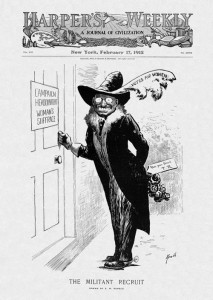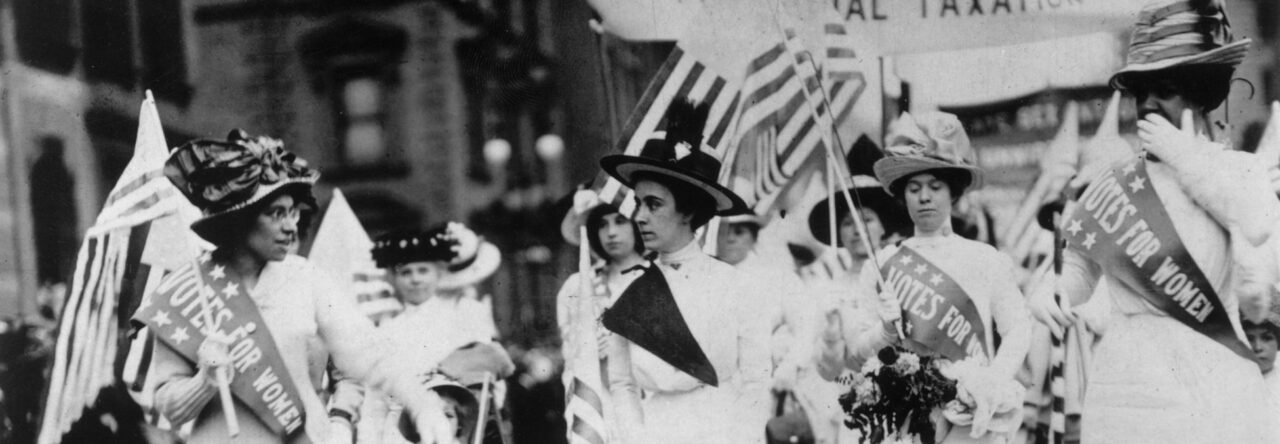 “How do the women of New York, who think they are—to put it moderately—at least equal to those of any other state in the Union, like the idea of being classed with idiots, insane, convicted criminals and boys under twenty-one on every Election Day?” –Ida Husted Harper in the New York Tribune
“How do the women of New York, who think they are—to put it moderately—at least equal to those of any other state in the Union, like the idea of being classed with idiots, insane, convicted criminals and boys under twenty-one on every Election Day?” –Ida Husted Harper in the New York Tribune
The year was 1912 and just like in New York, women in most states still did not have the guaranteed right to vote. With the upcoming presidential election, these women, as well as those who could vote, found a voice in Theodore Roosevelt’s Progressive Party, the first to adapt a woman suffrage plank. As suffragist Ida Husted Harper declared, “Women had taken a larger part in the political campaign…than ever before and one of the officers and many of the delegates present had spoken and worked for the Progressive party because of the suffrage plank in its platform” (p. 342). The platform stated, “We pledge our party and its candidates to support loyally and work for the women’s suffrage constitutional amendment at all stages.”
Historian Jo Freeman argued the reason many women backed Roosevelt and his ‘Bull Moose’ ticket as opposed to Wilson or Taft is because they “found a warmer welcome in the Progressive Party than they had ever had from the Democrats or Republicans…Roosevelt urged that women gave a voice in party affairs even in states where they could not vote.” For these women who could not vote, this voice was a way that they could influence the political campaign and prove they did have reason for needing the vote.
On Election Day, of the 1.3 million women who were eligible to vote, nearly half did so. According to the New York Times, “Women played even a more important part in California than was expected…many women who own autos used them to gather aged and infirm voters and carry them to the polls, as well as workers in shops and stores who had limited time. Many of the women workers in this city who were ardent Progressives appeared at the opening of the polls, at 6 o’clock, and remained throughout the day.” It was also observed that most women filled out the ballots quicker than men because they had “studied sample ballots more closely.”
When the results came in, Roosevelt had lost the election to Wilson even with the support of many women. Even so, there is no denying the importance of the election of 1912 had to women’s suffrage. The woman’s suffrage plank that the Bull Moose Party advocated empowered women to fight for their natural rights. Just as a protester wrote to the New York Times editor, “I venture to suggest the right to protection…as one right that woman does not possess that she sorely needs, and that the ballot is, so far as I know the only means of her obtaining”, women would not stop fighting for full enfranchisement until the 19th amendment was passed in 1920.

Leave a Reply
You must be logged in to post a comment.